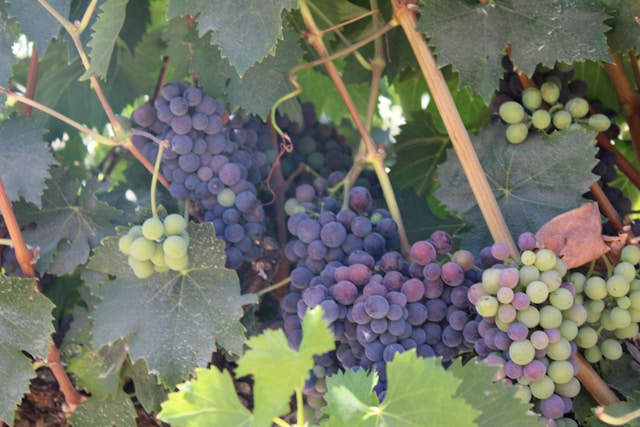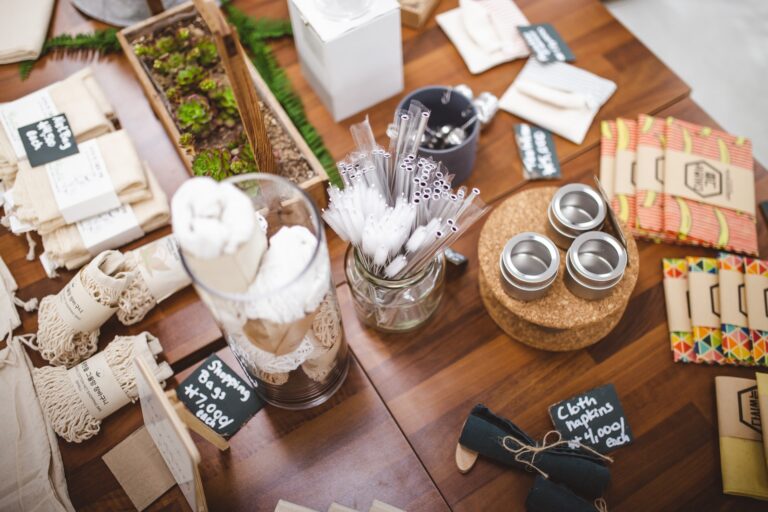The Carbon Footprint of Your Cabernet: Making Sustainable Wine Choices
 Sustainability has become a key purchasing factor for wine, as almost three quarters of wine drinkers now place more trust in producers who promote their reduced environmental impact. With its rich agricultural and social history, the enjoyment of good wine has always been about more than simply drinking alcohol. Now, as consumers prioritize sustainability when choosing which products to buy, the production of wine is changing not only to meet their needs but also to protect the environment, conserve resources and improve the quality of the wine. As well as supporting local winemakers and buying from ethical producers who follow fair trade practices, by choosing responsible storage solutions, recycling bottles or selecting alternative eco-friendly packaging, you can considerably reduce the carbon footprint of your wine consumption without compromising on great taste and quality.
Sustainability has become a key purchasing factor for wine, as almost three quarters of wine drinkers now place more trust in producers who promote their reduced environmental impact. With its rich agricultural and social history, the enjoyment of good wine has always been about more than simply drinking alcohol. Now, as consumers prioritize sustainability when choosing which products to buy, the production of wine is changing not only to meet their needs but also to protect the environment, conserve resources and improve the quality of the wine. As well as supporting local winemakers and buying from ethical producers who follow fair trade practices, by choosing responsible storage solutions, recycling bottles or selecting alternative eco-friendly packaging, you can considerably reduce the carbon footprint of your wine consumption without compromising on great taste and quality.
Sustainable Storage Solutions for Longer Shelf Life
.
In addition to thinking carefully about choosing sustainable wines to drink, the way you store and preserve wines can also benefit from an eco-friendly approach. While an easy drinking white for immediate consumption may be stored in a standard fridge, wines that have been crafted for a longer shelf life require certain environmental conditions in order to age well and avoid spoilage. A naturally cool basement or cellar provides eco-friendly storage as long as the ideal temperature of 55°F and a humidity level of 70% can be regularly maintained. If you don’t have access to a cellar and use a wine cooler or fridge for storage, there are a number of energy-efficient options available. A thermoelectric fridge works by passing an electric current between two metals, creating a difference in temperature. This simplified refrigeration design consumes less energy, negates the need for environmentally harmful refrigerants and runs more quietly than a conventional cooler.
Certification on Labels Indicate Ethical Wine Producers
.
As more wine producers adopt the eco-friendly practices of organic farming and water conservation, they are also sharing their research and experiences through organizations such as International Wineries for Climate Action (IWCA). For environmentally aware wine drinkers, choosing wines made by producers that engage in collective actions for sustainability is made easier with the addition of specific badges on labels. In the US, a wine must meet the criteria set out by the Department of Agriculture (USDA) for the protection of natural resources and the promotion of biodiversity in order to be officially certified as organic and display the USDA Organic Seal. There are also a number of certifications for sustainability that encompass the same concerns but that also include fostering responsible business practices and a more sustainable role in the wider community.
Lightweight Bottles Reduce the Carbon Footprint of Packaging
.
By buying locally from smaller more sustainable wineries you can reduce the carbon footprint associated with transportation and, since glass is 100% recyclable, conventional wine bottles can be a sustainable option as long as they are disposed of properly. However, as glass impacts up to 70% of the supply chain’s carbon footprint, the heavy weight of wine bottles can make buying wine from further afield less sustainable. The average weight of an empty bottle of wine is around 500g but some sparkling wine bottles can weigh as much as 1kg. In contrast, the lowest achievable weight for glass bottles is currently considered to be around 330g. While some producers are experimenting with alternative containers including aluminum cans and paper bottles, the Slow Wine Coalition, an international network of sustainable wine producers and consumers, is promoting the use of these lighter-weight glass bottles. Lighter bottles reduce transportation costs and emissions but, at the same time, still maintain the protective and aesthetic appeal offered by a traditional wine bottle.
As sustainability becomes more of a priority than a ‘nice to have’ for wine consumers, vineyards and wineries are working hard to meet their needs. As a result, it’s becoming easier to make sustainable wine choices. Change is accelerated when wine producers share their green credentials with official organizations, and clear certification labels on lighter weight bottles confirm the use of organic farming practices and eco-friendly production to consumers. Once purchased, it becomes the buyer’s responsibility to preserve their wine sustainably using natural or energy-efficient storage solutions that are now becoming increasingly widespread.

